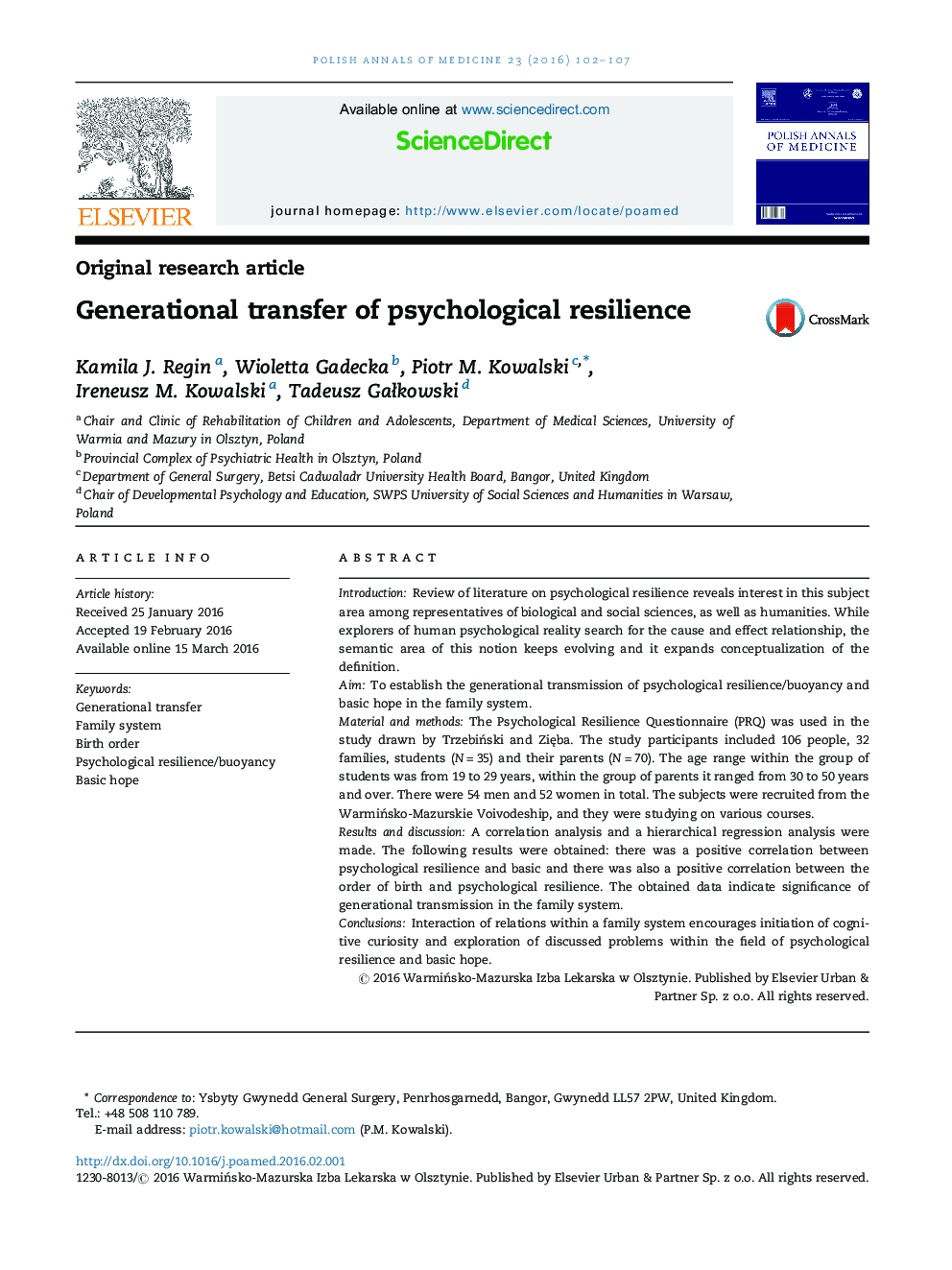| Article ID | Journal | Published Year | Pages | File Type |
|---|---|---|---|---|
| 2675293 | Polish Annals of Medicine | 2016 | 6 Pages |
IntroductionReview of literature on psychological resilience reveals interest in this subject area among representatives of biological and social sciences, as well as humanities. While explorers of human psychological reality search for the cause and effect relationship, the semantic area of this notion keeps evolving and it expands conceptualization of the definition.AimTo establish the generational transmission of psychological resilience/buoyancy and basic hope in the family system.Material and methodsThe Psychological Resilience Questionnaire (PRQ) was used in the study drawn by Trzebiński and Zięba. The study participants included 106 people, 32 families, students (N = 35) and their parents (N = 70). The age range within the group of students was from 19 to 29 years, within the group of parents it ranged from 30 to 50 years and over. There were 54 men and 52 women in total. The subjects were recruited from the Warmińsko-Mazurskie Voivodeship, and they were studying on various courses.Results and discussionA correlation analysis and a hierarchical regression analysis were made. The following results were obtained: there was a positive correlation between psychological resilience and basic and there was also a positive correlation between the order of birth and psychological resilience. The obtained data indicate significance of generational transmission in the family system.ConclusionsInteraction of relations within a family system encourages initiation of cognitive curiosity and exploration of discussed problems within the field of psychological resilience and basic hope.
